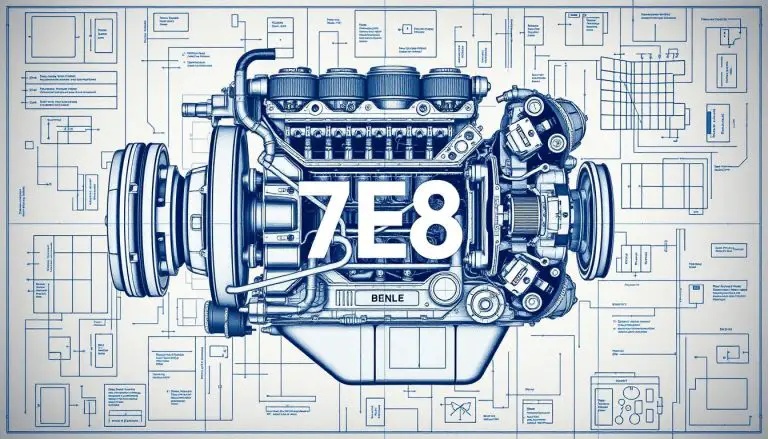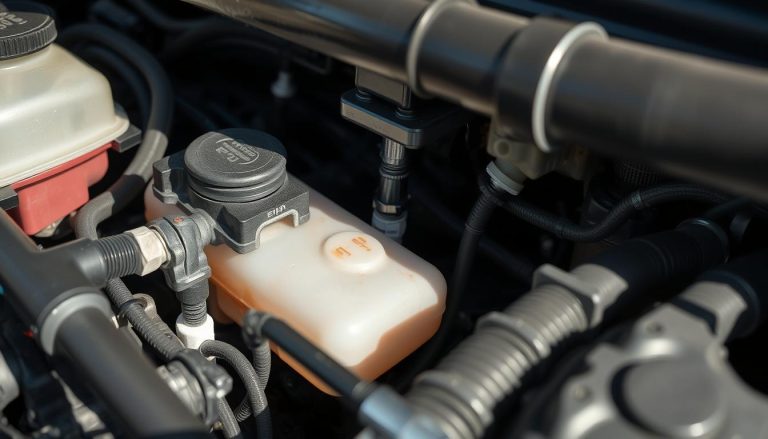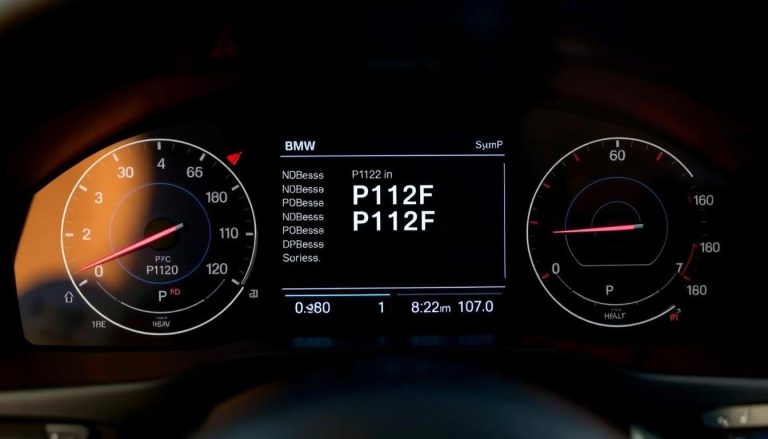This code indicates a problem with Cylinder 7’s contribution or balance—essentially telling you something isn’t right under the hood. Whether you’re driving an SUV, sedan, or truck, understanding what this code means and how to tackle it is crucial for maintaining your car’s performance.
In this blog post, we’ll delve into everything there is to know about the P0281 code: its causes and symptoms, potential repairs, and even tips on how to avoid facing it in the future.
What does the P0281 code mean?
The P0281 code signals a specific issue related to the contribution and balance of Cylinder 7 in your engine. Essentially, it indicates that this cylinder is not performing as efficiently as it should be.
Engines operate on the principle of balanced performance across all cylinders. When one cylinder falls behind, it disrupts the overall efficiency and power output. In this case, Cylinder 7 could be misfiring or delivering less power compared to its counterparts.
This trouble code can stem from various factors like fuel delivery problems, ignition system failures, or even mechanical issues within the engine itself. The vehicle’s computer detects these inconsistencies through data monitoring and triggers the P0281 alert.
Understanding what this code means is vital for diagnosing underlying issues before they escalate into more significant problems affecting your car’s performance.
What parts can be affected by P0281 code ?
The P0281 code primarily indicates an issue with cylinder 7’s contribution to engine performance. This can impact various parts of the fuel and ignition systems.
Fuel injectors are often affected. A malfunctioning injector may not deliver the correct amount of fuel, leading to uneven combustion in that cylinder.
Spark plugs also play a crucial role. If they are worn or failing, it can cause misfires, further complicating issues related to this error code.
In some cases, problems with the wiring harness or connectors linked to cylinder 7 could contribute to inconsistent readings and performance.
Engine control modules (ECMs) might show signs of stress as they attempt to compensate for these irregularities. Addressing these components is vital for restoring balance and efficiency in your vehicle’s operation.
What parts can be affected by P0281 code ?
The P0281 code primarily indicates an imbalance in the cylinder contribution, specifically for Cylinder 7. This can impact several engine components.
One of the main parts affected is the fuel injector. If it’s malfunctioning, it may not deliver the proper amount of fuel to Cylinder 7, leading to performance issues.
Another critical component is the ignition coil. A faulty ignition coil can cause misfires and poor combustion in that particular cylinder.
Vacuum leaks are also a concern. These leaks disrupt air-fuel mixture ratios, making it difficult for Cylinder 7 to operate efficiently.
Additionally, problems with wiring or connectors related to these components might arise. Damaged wires can lead to erroneous readings and exacerbate the issues linked with this code.
Each of these elements plays a vital role in maintaining engine balance and overall vehicle performance. Addressing any malfunctions swiftly can prevent further complications down the line.
What are the common symptoms of a P0281 code?
When the P0281 code triggers, your vehicle may exhibit a variety of noticeable symptoms. One common sign is rough idling. You might feel the engine vibrating more than usual when stopped.
Another symptom often reported is a decrease in engine performance. Acceleration could feel sluggish or unresponsive, making driving frustrating.
Increased fuel consumption can also occur. If you notice frequent trips to the gas station without any changes in driving habits, this could be linked to the P0281 code.
Check-engine lights are practically guaranteed with this issue as well. The appearance of this warning signals that something isn’t right and needs attention.
You might experience misfires or backfiring sounds while accelerating. These auditory cues indicate that cylinder 7 isn’t firing properly, contributing to an overall imbalance in engine operation.
What are the common symptoms of a P0281 code?
When your vehicle registers a P0281 code, you might notice several symptoms. A common sign is rough idling. The engine may struggle to maintain a steady rhythm while running.
Another symptom often linked with this code is poor acceleration. You might feel sluggishness when trying to speed up or merge onto highways.
Misfires can also occur frequently if the engine struggles with cylinder contribution balance. This issue can lead to noticeable vibrations during operation.
In addition, reduced fuel efficiency could be an indicator of the P0281 code. If you’re filling up more often without changing your driving habits, it’s worth investigating further.
The check engine light will likely illuminate on your dashboard as a warning signal that something isn’t right under the hood. Each of these signs reflects underlying issues related to cylinder 7 performance and should prompt immediate attention.
How serious Is the P0281 Code? Can I continue driving with the P0281 code?
The P0281 code indicates a problem with cylinder 7’s contribution or balance. This can lead to poor engine performance and increased emissions. While it might be tempting to ignore the warning, doing so can have serious consequences.
Driving with the P0281 code may cause engine misfires or rough idling. These symptoms not only diminish your vehicle’s efficiency but can also result in further damage over time.
If you notice any unusual sounds, vibrations, or smells while driving, it’s best to address the issue sooner rather than later. Continuing on could strain other components of your car and ultimately lead to more expensive repairs down the line.
It’s advisable to consult a mechanic as soon as possible if this code appears. They can assess whether it’s safe for you to keep driving and help prevent larger issues from developing.
What are the repair solutions for a P0281 – Cylinder 7 Contribution/Balance ?
Repairing a P0281 code typically starts with a thorough diagnosis. Mechanics often check the fuel injectors, as an issue here can directly affect cylinder performance.
If the fuel injector is faulty, replacing it may resolve the imbalance. Sometimes cleaning or testing existing injectors can be sufficient.
Another common fix involves inspecting wiring and connections related to Cylinder 7. Damaged wires or poor connections might disrupt communication and cause errors in balance readings.
In some cases, issues within the engine control module (ECM) are found. Reprogramming or replacing the ECM could be necessary if other components check out fine.
Don’t overlook routine maintenance either. Regular oil changes and air filter replacements can help keep your engine running smoothly, potentially preventing future codes like P0281 from appearing.
What other codes may be related to P0281?
When dealing with the P0281 code, several other trouble codes may come into play. These related codes often indicate issues with the fuel system or engine performance.
Codes like P0300 through P0308 are particularly relevant. They signify misfires in various cylinders, which could point to a broader problem affecting cylinder 7’s contribution and balance.
You might also encounter P0171 or P0174, which relate to lean fuel mixtures. A lean condition can exacerbate balance issues among cylinders and contribute to poor engine performance.
Additionally, keep an eye out for codes associated with injector failures, such as P0207. This indicates a malfunction in the injector circuit for cylinder 7 specifically.
Understanding these interconnected codes can help diagnose the root causes of your vehicle’s symptoms more effectively.
How much does it cost to diagnose and repair a P0281 code?
Diagnosing and repairing a P0281 code can vary significantly in cost, depending on several factors. Typically, the diagnostic fee ranges from $100 to $200. This may include labor charges for mechanics who run tests and check your vehicle’s systems.
If repairs are necessary, the overall expense can increase. Minor fixes like replacing spark plugs or ignition coils could cost between $150 and $300. However, if more complex issues arise—such as problems with fuel injectors or the engine control unit—the repair costs might soar upwards of $500 to $1,000.
Additionally, parts availability and labor rates in your area will influence total expenses. Always seek multiple estimates before proceeding with any repairs to ensure you get a fair price for resolving the P0281 code issue.
How long does it take to diagnose and repair code P0281?
Diagnosing and repairing the P0281 code can vary significantly depending on several factors. Typically, a skilled technician might take one to two hours to pinpoint the problem.
The time required for repair hinges on what’s causing the cylinder imbalance. If it’s a simple fix like replacing spark plugs or ignition coils, it could be completed within an hour or so. However, if there are deeper issues such as problems with fuel injectors or wiring harnesses, repairs may extend over several hours.
Additional complications like accessibility of components and needed parts availability can also impact repair times. Always consult your mechanic for specific estimates tailored to your vehicle’s condition. Staying informed helps manage expectations throughout this process.
Is the P0281 code specific to certain car makes or models?
The P0281 code is not limited to one specific make or model. It can appear across a wide range of vehicles, particularly those equipped with V6 and V8 engines.
Manufacturers like Ford, GM, Chrysler, and Nissan have all reported instances of this code in their models. However, the design and configuration of engine systems can influence its occurrence.
For example, certain vehicles may experience more frequent issues due to fuel delivery problems or injector malfunctions related to their unique engineering designs.
It’s essential for vehicle owners to understand that while some brands might be more prone to the P0281 code, any car with similar engine configurations could potentially face this issue at some point in its lifespan. Regular maintenance plays a key role in preventing such diagnostic trouble codes from arising.
How can I avoid a P0281 code?
To avoid a P0281 code, regular vehicle maintenance is key. Routine checks of your engine’s performance can help catch issues early.
Ensure you replace fuel filters and spark plugs as recommended by manufacturers. This easy step keeps the engine running smoothly.
Using high-quality fuel also makes a difference. Poor fuel quality can lead to misfires and imbalances in cylinder contributions.
Additionally, keep an eye on your ignition system. Faulty coils or worn-out wires may contribute to problems down the line.
Frequent diagnostics can proactively identify irregularities before they escalate into serious issues like the P0281 code.
Ensure that your computer software is updated with any manufacturer recalls or software patches for optimal performance.
What happens if you ignore a P0281 code?
Ignoring a P0281 code can lead to several negative consequences. The primary issue is that the underlying problem remains unresolved, which may cause further damage to your vehicle over time. When cylinder 7 shows contribution or balance issues, it indicates that the engine isn’t running efficiently. This inefficiency can affect fuel economy and overall performance.
If you continue driving with this code, you might experience rough idling, stalling, or even reduced power while accelerating. Additionally, persistent issues could trigger more serious problems like engine misfires or damage to other components such as the catalytic converter.
Long-term neglect of a P0281 code can result in costly repairs down the line. Not only will you face higher repair bills for potential engine damage, but there is also a risk of being stranded due to unexpected breakdowns.
Addressing the P0281 code promptly helps maintain your vehicle’s health and ensures safer driving conditions. Taking action now prevents larger headaches later on; it’s best not to overlook warning signs from your car’s onboard diagnostics system.


